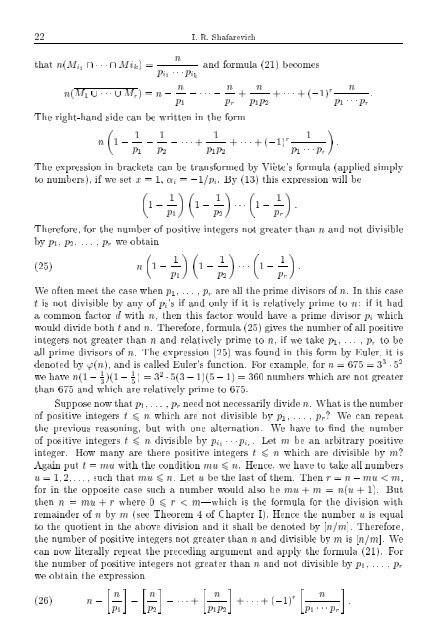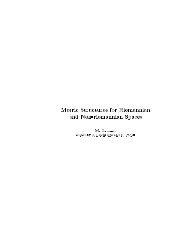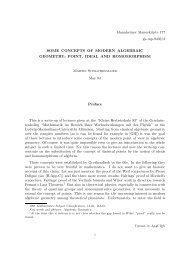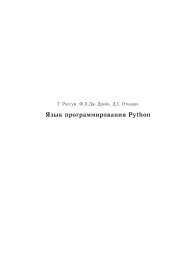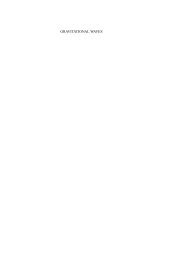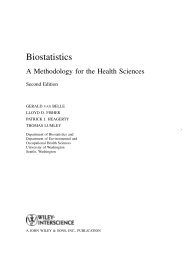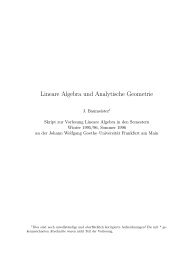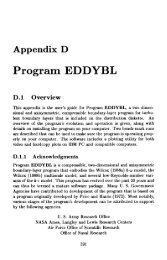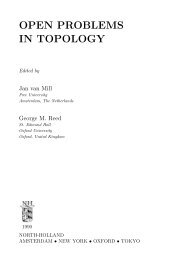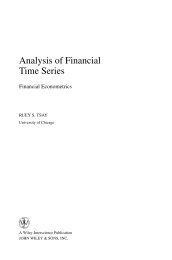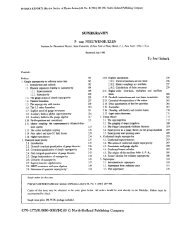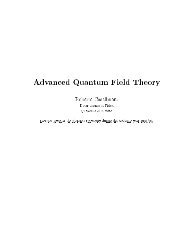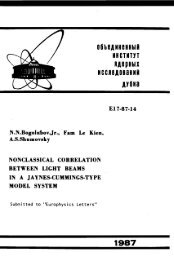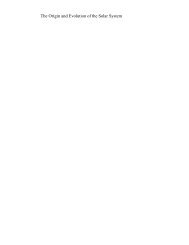SELECTED CHAPTERS FROM ALGEBRA I. R. Shafarevich Preface
SELECTED CHAPTERS FROM ALGEBRA I. R. Shafarevich Preface
SELECTED CHAPTERS FROM ALGEBRA I. R. Shafarevich Preface
You also want an ePaper? Increase the reach of your titles
YUMPU automatically turns print PDFs into web optimized ePapers that Google loves.
22 I. R. <strong>Shafarevich</strong>that n(M i1 \\Mi k )=p i1 p iknand formula (21) becomesn(M 1 [[M r )=n ; n p 1;; n + + +(;1) r :p r p 1 p 2 p 1 p rThe right-hand side can be written in the formn1 ; 1 p 1; 1 p 2;+ 1p 1 p 2+ +(;1) r 1p 1 p r:The expression in brackets can be transformed by Viete's formula (applied simplyto numbers), if we set x =1, i = ;1=p i . By (13) this expression will be1 ; 1 p 11 ; 1 p 21 ; 1 p r:Therefore, for the numberofpositiveintegers not greater than n and not divisibleby p 1 , p 2 , ... , p r we obtain(25) n1 ; 1 p 11 ; 1 p 21 ; 1 p r:We often meet the case when p 1 ,... , p r are all the prime divisors of n. In this caset is not divisible by anyofp i 's if and only if it is relatively prime to n: if it hada common factor d with n, then this factor would have aprime divisor p i whichwould divide both t and n. Therefore, formula (25) gives the number of all positiveintegers not greater than n and relatively prime to n, ifwetake p 1 , ... , p r to beall prime divisors of n. The expression (25) was found in this form by Euler, it isdenoted by '(n), and is called Euler's function. For example, for n =675=3 3 5 2we have n(1; 1 3 )(1; 1 5 )=32 5(3;1)(5;1) = 360 numbers which are not greaterthan 675 and which are relatively prime to 675.Suppose nowthatp 1 ,...,p r need not necessarily divide n. What is the numberof positive integers t 6 n which are not divisible by p 1 , ... , p r ? We can repeatthe previous reasoning, but with one alternation. We have to nd the numberof positive integers t 6 n divisible by p i1 p ir . Let m be an arbitrary positiveinteger. How many are there positive integers t 6 n which are divisible by m?Again put t = mu with the condition mu 6 n. Hence, we have to take allnumbersu =1 2 ..., such that mu 6 n. Let u be the last of them. Then r = n;mu < m,for in the opposite case such a number would also be mu + m = n(u +1). Butthen n = mu + r where 0 6 r < m|which is the formula for the division withremainder of n by m (see Theorem 4 of Chapter I). Hence the number u is equalto the quotient in the above division and it shall be denoted by [n=m]. Therefore,the number of positive integers not greater than n and divisible by m is [n=m]. Wecan now literally repeat the preceding argument and apply the formula (21). Forthe number of positive integers not greater than n and not divisible by p 1 , ... , p rwe obtain the expression(26) n ; np 1;n n;+ + +(;1) r n:p 2 p 1 p 2 p 1 p rnn


